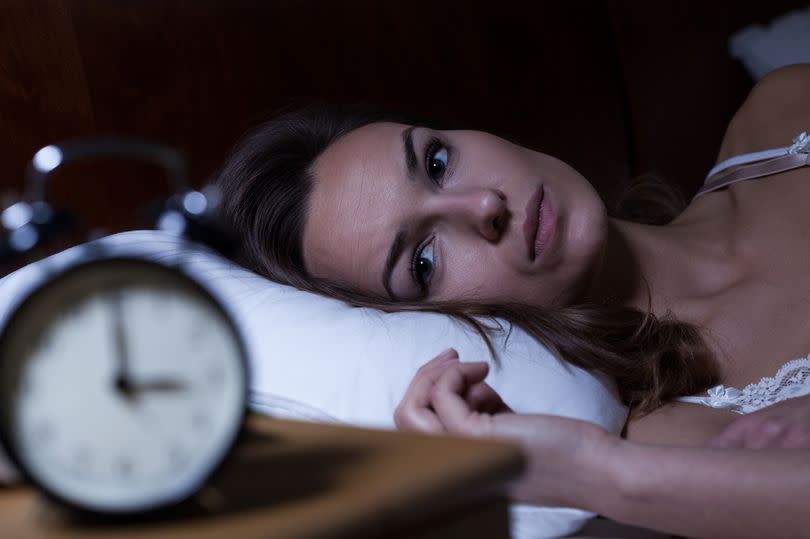Experts explain how pregnant women can improve sleep during the summer including sleeping on one particular side

As we make our way into the middle of summer, many may be concerned about how they're going to get enough sleep while battling the rising temperatures.
New research from JoJo Maman Bébé revealed that more than four in five (82 per cent) mothers across the UK said they struggle with sleep during their pregnancies. Meanwhile, 48 per cent said they struggled the most during the middle of the night while as a result, 71 per cent said they made significant changes to their sleeping environment.
Jojo Maman Bebe partnered with sleep experts Jenna Wilson and Dave Gibson to help provide some much-needed tips so Britain's mums could help improve their sleep while pregnant. Here's a breakdown of what they recommended so you can get your beauty sleep each and every night.
Promote good sleep hygiene and establish a consistent routine
Dave Gibson, who has been studying the effects of sleep on British women, 71% of whom have altered their sleeping environments to tackle common issues such as discomfort and temperature, emphasises the importance of good sleep hygiene.
He elaborates: "Good sleep hygiene largely consists of maintaining a sleep routine that encourages us to fall asleep easily and stay asleep throughout the night.
"Sleep hygiene refers to a set of practices and habits that are necessary to have good quality nighttime sleep and full daytime alertness. This includes a regular bedtime routine as well as a consistent bed and wake time, even on weekends."
Sleeping on the left side is advised for better circulation
Dave further explains: "Sleeping posture is important and you should be lying on your left-hand side, to aid circulation, especially during your second and third trimester.
"Avoid sleeping face down during the second and third trimester as this puts pressure on the uterus and sleeping on your back can reduce blood flow and increase breathing difficulties.
"The aim is that your spine should remain in a neutral alignment to help the joints and muscles relax whilst you sleep. Using pregnancy pillows can help support your body during sleep. Elevating your upper body is something to consider during the latter months as it helps ease the pressure on your digestion and circulation systems. It also helps ease breathing difficulties."
Practice relaxation techniques such as yoga and meditation during the day
Jenna explains: "Engaging in activities like prenatal yoga, meditation, tapping or deep breathing exercises before bed can help you drift off to sleep."
Dave adds: "Also reading a book or having a warm bath are great ways to unwind. Another tip is to create boundaries with technology and limit its usage close to bedtime. The blue light emitted from screens blocks the release of melatonin (our sleep hormone) reducing our desire for sleep so aim to keep the phone out of the bedroom and opt for a dawn simulator for an alarm to help you wake up naturally."
Limit fluids before bed and take regular breaks throughout the day
Dave explains: "It's important to stay hydrated throughout the day, but avoid large amounts of fluids before bed to prevent frequent nighttime trips to the bathroom.
"Throughout the day, take regular breaks to help ease achy muscles and opt for light meals in the evening to prevent discomfort and indigestion - which can disrupt sleep.
"Incorporate magnesium-rich foods such as nuts, seeds, and leafy greens, as well as tryptophan-rich foods like turkey to promote relaxation and better sleep. Maintaining regular mealtimes and avoiding heavy meals close to bedtime can support better sleep patterns."
Opt for a cooling shower before bed and use gel pillows to help reduce temperature
Dave suggests: "There are a variety of methods that can be used to reduce body temperature such as having a cool shower before bed, using ice packs and damp clothes as well as cooling sprays which can be used on the feet, wrists and the back of the head.
"To cool down the bedroom, opt for a fan near the bed to keep the air circulating and use a dehumidifier to keep the humidity levels low, as high humidity can make the heat feel more oppressive.
"Closing your bedroom curtains during the day is also a good way to keep the heat out in the summer months. Opt for light, breathable bedding such as cotton and bamboo. Similarly, wear cool, light sleepwear made from breathable materials (or none).
"You could consider investing in a cooling gel pillow too. During exceptionally hot days, opt for cooling your bed linen in the fridge with a plastic bag."

 Yahoo News
Yahoo News 
